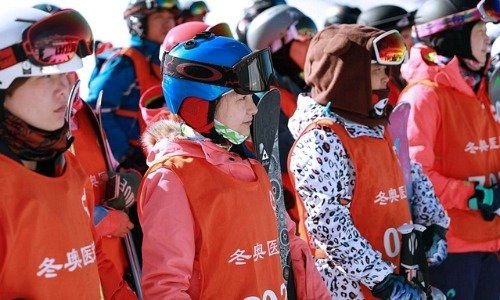OlymPicks: Why Business is Flourishing Amid the Pre-Beijing 2022 Winter Olympics Boom
OlymPicks is an ongoing blog series whereby we highlight news, gossip, and developments regarding the buildup to Beijing's 2022 Winter Olympics.
The ski resorts in Hebei’s Chongli District have won over Beat Wittmann, which is a major feat indeed. Before he became a financial analyst, and chairman and partner at Zurich-based renowned financial advisory firm Porta Advis, Wittmann was an avid skier and instructor in his native Switzerland. With that in mind, his approval bodes well for Beijing's ski scene spurned on by the approaching 2022 Winter Olympics, especially when one considers just how nascent China’s winter sports industry is.
In a recent interview with FI News after his visit to Chongli, Wittmann said: “My efforts to get a grip on the unprecedented boost in popularity and growth in winter sports in China has a personal dimension as I spent my youth in a Swiss mountain resort, my first job was as a ski instructor, and I have been a passionate skier ever since. So for me, it was a special pleasure indeed to see this Chinese initiative...”

Wittmann adds that his enthusiasm for the project is boosted by signs that the infrastructure for the Games is on track, which is promising for pros, recreational skiers, and investors: “It is a highly attractive business from a global and financial perspective, with corporate advisory and investment opportunities available, however, only for those who act decisively, consistently, and in a timely manner.”
Such prospects are a stark departure from China’s comparatively meager debut ski facilities. Wittmann points to Club Med (a French company that runs all-inclusive resorts around the globe), which kickstarted the winter sports bug with its first Chinese resort at Yabuli in the northeastern province of Heilongjiang in 1995. Others have since followed suit, building resorts that will be far eclipsed by those cropping up in the run-up to 2022. And as those Games approach, he says, “the relatively high number of small resorts will be replaced by full service and large scale resorts.”
Wittmann's remarks come on the heels of Club Med upping its ante in China’s winter sports scene. It recently announced plans to open both a resort and a ski school in Chongli. Although details are still scant in terms of the project’s timeline or the resort’s particular amenities, Club Med’s announcement nevertheless made a major splash thanks to the heft of its brand and the company’s established history in helping to nourish Beijing’s love for winter sports.

With announcements of new resorts coming in thick and fast, there’s no denying the business potential of China's growing interest in winter sports. For proof, chairman and chief executive officer of Club Med’s owner Fosun Tourism Group, Qian Jiannong, recently told the South China Morning Post that the number of Chinese skiers visiting Club Med’s resorts shot up by 82.4 percent last year alone.
From his point of view, Wittmann said: “Broadly speaking the overall economic value creation of the ski market in China can be broken down in percent of total volume into following categories: personal equipment (15 percent), skiing site facilities (10 percent), resort operations (25 percent), and skiing services, hospitality, and games (50 percent). So in some ways, this is the next chapter in the longtime love affair of the Chinese consumer with European luxury brands in particular.”







